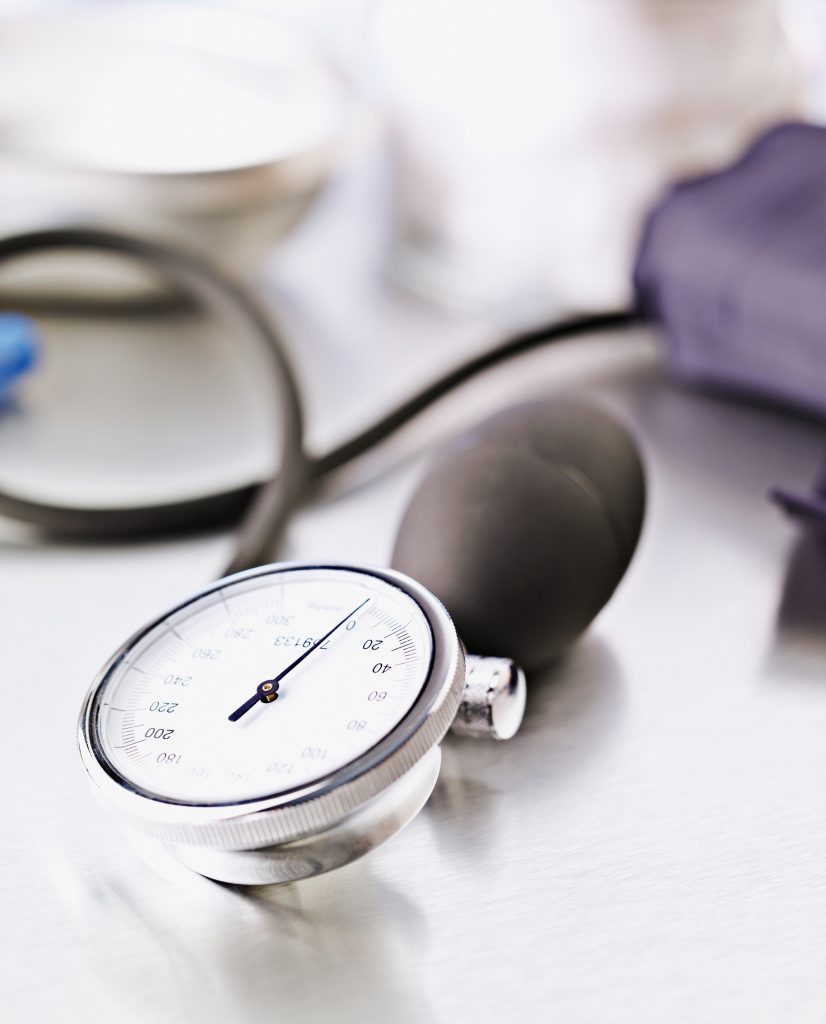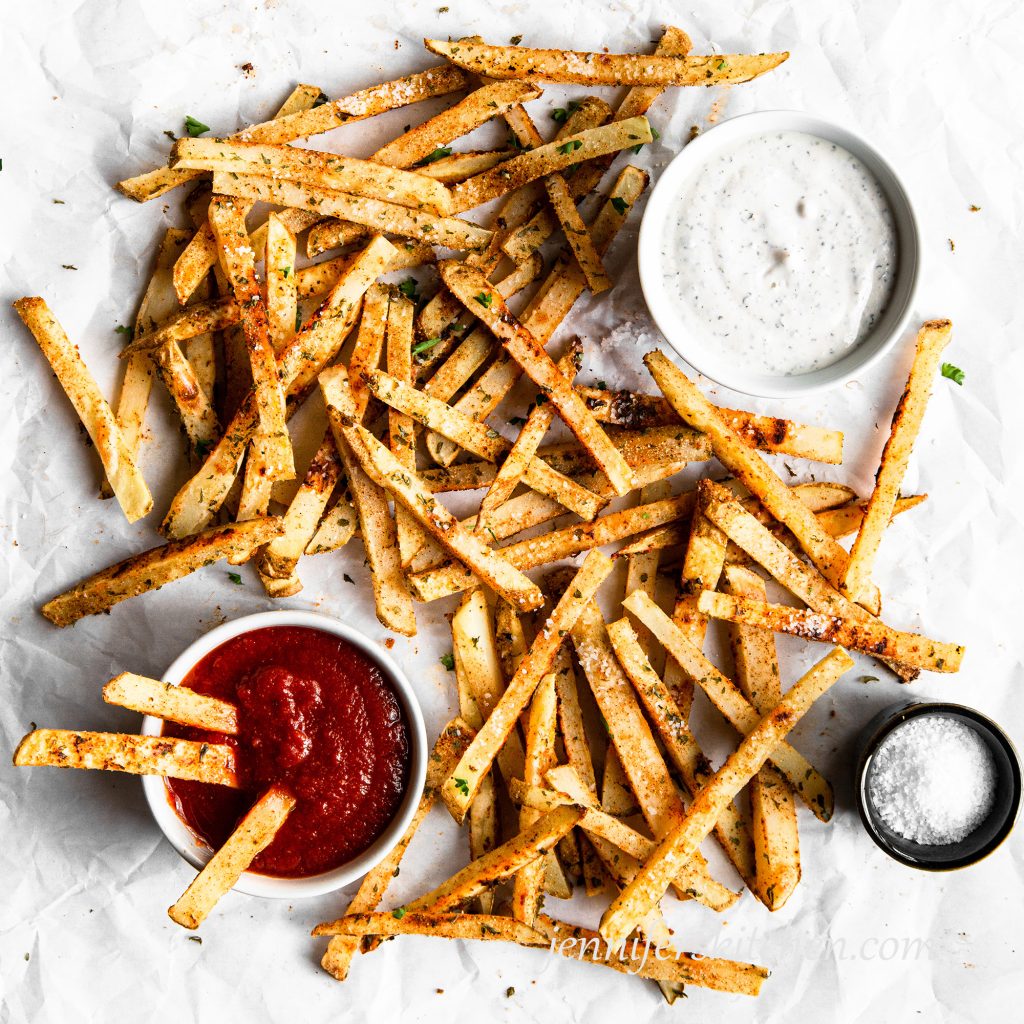Reversing Heart Disease
Reversing Heart Disease – Research shows that we can not only prevent, but with the right tools we can reverse heart disease. Here’s what you need to know.
Anna had just celebrated her 53rd birthday, but she didn’t feel much like celebrating. Six months previous, Anna began having chest pain. Her doctor ordered some tests and diagnosed Anna with heart disease. Determining that she was too young to have a health issue like this, Anna started eating healthier, joined the gym, and committed to working out for one hour five days a week.
Yet despite a daily salad and 5 hours of sweat and hard work every week, her last doctor’s visit (two days before her birthday) revealed that not a lot had changed concerning her heart health.
She was already on 3 different medications for various health issues, and her doctor had written her yet another prescription.
Anna had had enough.
A Better Plan
Instead of another pill, she contacted a preventative lifestyle physician who put together a comprehensive program for her that included several changes in diet and lifestyle.
She then contacted me and we set up a new eating plan for her.
Anna quit the gym and instead used her gym time to prepare healthy meals. She also committed to a short 15-minute walk twice a day.
After only 14 days on the program, she felt better that she had felt in years. After three weeks her cholesterol levels came down to normal. After 3 months, she was completely off all her other medications.
She also experienced a number of other benefits that she had not expected, such as a complete disappearance of her joint pain.
What made the difference for Anna?
One of Anna’s favorite foods was ice cream. Butter pecan ice cream. When Anna ate a bowl of this creamy treat, because her body did not need the fat or cholesterol in that bowl of ice cream, the excess was stored in her blood and tissues. After time, this excess fat and cholesterol began to form plaques inside her blood vessels. As the cholesterol plaques gradually built up over time, her blood vessel openings narrowed, and blood flow was obstructed.
The chest pain that Anna experienced (angina) was because there wasn’t sufficient blood flow to her heart. The pain would quickly go away, but she had very valid reason for concern. The pain was caused by plaque buildup in one of her heart’s arteries, or atherosclerosis – a condition that would likely lead to more medications or surgery (or worse).
To make matters worse, the fat in the ice cream also disrupt nitric oxide production. Nitric oxide help blood vessels to relax and expand, allowing for better blood flow.
Can we reverse plaque buildup?
Research shows that we can not only prevent heart disease, but with the right tools we can reverse it.
When Anna swapped out her bowl of ice cream for a bowl of mangos and blueberries (among a few other dietary adjustments), things began to change. Within two weeks, her chest pain was gone. Within a month, the blood flow to her heart was back to a healthy level. Within a year, the plaques had dissolved and her blocked arteries reopened.
Reversing Heart Disease

Heart disease is a leading cause of death in many countries. But by following these 11 steps, we can lower blood pressure, lower cholesterol and dissolve plaques, and prevent and even reverse this dreaded disease.
1. Eat More Beans
One of the best medicines to reverse vascular impairment is legumes (beans, peas, and lentils).
Legumes contain an amino acid called arginine. Arginine is a precursor to nitric oxide, a compound made by the body that helps the arteries to relax and dilate. Eating more legumes increases your arginine intake and thus increases blood flow and lowers blood pressure.
But legumes give you even more!! The high amounts of fiber in beans, peas, and lentils helps sweep excess cholesterol out of the body.
> Get some delicious legume recipes!
2. Eat More Fruits and Vegetables
Studies show that those who eat an abundance of fruits and vegetables every day have a much lower risk for cardiovascular mortality.
3. Avoid Animal Products
Studies show that eating a plant-based diet significantly reduces your risk of heart disease, while meat consumption increases your risk of this disease.
Can’t I just eliminate red meat and eat fish or chicken?
Research shows that white meat will raise LDL cholesterol and increase heart disease risk just as much as red meat. Animal products in general increase inflammation, reduce blood flow, and prompt the gut microbes to produce chemicals that increase the risk for heart disease.
> Get some tasty plant-based recipes!
4. Avoid Refined Foods
Refined foods, like sugar, corn syrup, white flour, white rice also cause problems for the blood vessels. In fact, when study participants replaced meat (which is well-known to contribute to heart disease) with foods like white bread, corn chips, breakfast bars, snack cakes, juice, fries, or desserts, they did not experience cardiovascular benefits.
Why?
Because refined foods increase levels of LDL cholesterol and triglycerides in the blood, stress the arteries, and reduce elasticity of artery walls.
> Get some yummy sugar-free recipes!
5. Avoid Oil
Another refined food that should be avoided is oil. All oils are refined (even those that are labeled “unrefined”) and contribute to heart disease.
What about olive oil?
Olive oil is promoted as being a heart-healthy oil because when you replace more harmful fats (such as lard, margarine, butter, cheese, fatty meats, corn oil, etc.) with olive oil you will see an improvement in health. But it isn’t the olive oil that improved heart health; it is the removal of artery-clogging saturated fat that provided the benefits.
So, olive oil may be better for you than terribly unhealthy oils, but is olive oil good for your heart?
The consumption of olive oil is associated with a significant increase in new atherosclerotic lesions and constricted blood flow. It also blocks the production of nitric oxide.
Olive oil it is not a whole food. It is calorie-dense and nutrient-poor. It contains no fiber, no minerals, and is 100% fat calories.
Instead of using oil, get your fat from whole foods like nuts, avocados, and olives. When you replace olive oil (a refined food) with olives (a whole food), you see significant improvement in health.
> Get some delicious oil-free recipes.
6. Lose Excess Weight
Being overweight causes a loss of elasticity in arteries and increases risk of developing a blood clot.
If you are overweight, losing weight will contribute to heart health.
7. Drink Plenty of Water
Water is the most basic element of blood, and insufficient intake increases the risk of blood clots and heart attack. In fact, research shows that insufficient water intake reduces vascular function nearly as much as smoking a cigarette.
In contrast, abundant water intake can actually thin the blood just as well as some medications.
The average person doesn’t drink even half the amount of water his/her body needs.
How much water should you drink? Drink at least a quart of water upon awakening in the morning and then drink enough the rest of the day to keep the urine nearly clear in color.
Avoid juice, soda, and other beverages. The body needs pure water.
8. Avoid Late Night Meals
Late night meals increase weight gain, reduce quality of sleep, increase blood fats, and reduce the body’s ability to heal.
Breakfast should be your largest meal of the day. Skipping breakfast is associated with a 27% higher risk of coronary heart disease.
Lunch should be your second largest meal. And supper should be the smallest meal of the day.
For a really light supper, try this Fabulous Fruit Salad, a Cherry Milkshake, these Apricot Energy Bites, this Apple Salad, or a couple pieces of fresh fruit.
9. Avoid Caffeine
Caffeine is a powerful drug and its effects are the health are often underestimated. Caffeine and its related chemicals (which are also found in decaffeinated beverages) increase the risk for blood clots, increase blood pressure, deplete the body’s supply of B vitamins (important for healthy vascular endothelial function), cause triglyceride levels to rise, dehydrate the body, and accelerate the development of atherosclerosis. Caffeine also reduces the body’s ability to boost blood flow to the heart muscle in response to physical exertion.
10. Don’t Smoke
Smoking damages the lining of the blood vessels and increases the platelet aggregation.
11. Get Sufficient, Quality Sleep
A lack of good-quality sleep can increase blood pressure, raise cortisol levels, cause endothelial dysfunction, negatively affect cholesterol levels, and increase the risk for a heart attack. Even missing just a few hours of sleep for one night can trigger inflammation in the blood vessels.
The body functions best on an early schedule. Wrap up the day’s activities early in the evening. Put away all digital devices by at least 8:00 p.m., go to bed by 9:30 p.m., and sleep in complete darkness (and with fresh air if possible).
“Two hours’ good sleep before twelve o’clock is worth more than four hours after twelve o’clock.” {7MR 224}
Do you struggle to sleep well? Here are some tips for getting a good night sleep!
Anna and reversing heart disease
At first, Anna resisted the thought that she would have to make so many changes in her life. She and her husband enjoyed staying up late with a movie and a snack of buttered popcorn (and of course, ice cream). Vegetables were definitely not among her top favorite foods. This new lifestyle was not appealing to her.
But her alternative wasn’t all that appealing either.
Medications, deteriorating health, and increased risks, and maybe even surgery were in her future if she didn’t make changes.
She decided to give it 30 days.
I provided her with a menu, a grocery list, and plan, and she gave it a go.
After only 2 weeks she felt so good that she had zero desire to go back to her old way of eating.
Her cholesterol levels came down to normal, and Anna (under the supervision of her physician) was able to eliminate all her medications.
“I’m a new woman!” Anna told me.
Indeed, she was.
Disclaimer
The information in this article is for educational purposes only. It is not as a substitute for medical diagnosis or treatment.
References
While some cholesterol is needed by the body, the body produces all that it requires. Any excess cholesterol gets stored in the blood and tissues. After some time, this excess stored cholesterol may begin to form plaques inside the blood vessels. This condition is known as atherosclerosis.
Razny U, et al. “Increased nitric oxide availability attenuates high fat diet metabolic alterations and gene expression associated with insulin resistance” Cardiovasc Diabetol (2011)
BMJ-British Medical Journal. “Five daily portions of fruit and vegetables may be enough to lower risk of early death” ScienceDaily (2014)
University College London. “New evidence linking fruit and vegetable consumption with lower mortality” ScienceDaily (2014)
Tuso P, Stoll SR, Li WW. “A plant-based diet, atherogenesis, and coronary artery disease prevention” Perm J. (2015)
Guasch-Ferré M. et al. “Meta-Analysis of Randomized Controlled Trials of Red Meat Consumption in Comparison With Various Comparison Diets on Cardiovascular Risk Factors” Circulation. 139 (2019)
Kahleova H, Levin S, Barnard ND. “Vegetarian Dietary Patterns and Cardiovascular Disease” Prog Cardiovasc Dis. 61 (2018)
Barnard ND, et al. “Plant-Based Diets for Cardiovascular Safety and Performance in Endurance Sports” Nutrients. 11 (2019)
Zhong VW, et al, Associations of processed meat, unprocessed red meat, poultry, or fish intakake withindident cardiovascular disease and all-cause mortality” JAMA Inter Med (2020)
Bergeron N, et al. “Effects of red meat, white meat, and nonmeat protein sources on atherogenic lipoprotein measures in the context of low compared with high saturated fat intake: a randomized controlled trial” American Journal of Clincal Nutrition (2019)
Wang M, et al. “Dietary meat, trimethylamine n-oxide-related metabolites, and incident cardiovascular disease among older adults: the Cardiovascular Health Study” Arterioscler Thromb Vasc Biol (2022)
Hyunju Kim, “Plant‐Based Diets Are Associated With a Lower Risk of Incident Cardiovascular Disease, Cardiovascular Disease Mortality, and All‐Cause Mortality in a General Population of Middle‐Aged Adults” JAHA (2018)
Hyunju Kim, “Healthy Plant-Based Diets Are Associated with Lower Risk of All-Cause Mortality in US Adults” J Nutr (2018)
Temple, Norman J. “Fat, Sugar, Whole Grains and Heart Disease: 50 Years of Confusion.” Nutrients 10 (2018)
Siri PW, et al. “Influence of dietary carbohydrate and fat on LDL and HDL particle distributions” Curr Atheroscler Rep (2005)
Tel Aviv University, “How High Carbohydrate Foods Can Raise Risk For Heart Problems” ScienceDaily (2009)
CF Rueda-Clausen, et al. “Olive, soybean and palm oils intake have a similar acute detrimental effect over the endothelial function in healthy young subjects” Nutr Metab Cardiovasc Dis. (2007)
Vogel RA, et al. “The postprandial effect of components of the Mediterranean diet on endothelial function” Journal of the American College of Cardiology (2000)
R A Vogel, “Brachial artery ultrasound: a noninvasive tool in the assessment of triglyceride-rich lipoproteins”, Clinical Cardiology (1999)
Rissanen P, et al. “Weight change and blood coagulability and fibrinolysis in healthy obese women” Int J Obes Relat Metab Disord (2001)
Arnaoutis G. “The effect of hypohydration on endothelial function in young healthy adults” European Journal of Nutrition, 2016
Garaulet M, et al. “Timing of food intake predicts weight loss effectiveness” International Journal of Obesity (2013)
Daniela Jakubowicz, et al. “High Caloric Intake at Breakfast vs. Dinner Differentially Influences Weight Loss of Overweight and Obese Women” Obesity (2013)
Leah E Cahill, “Prospective study of breakfast eating and incident coronary heart disease in a cohort of male US health professionals” Circulation (2013)
Agatha M. Thrash, M.D., “A Synopsis of Cholesterol and Diseases Related to It”
John McDougall, The McDougall Program for a Healthy Heart
American College of Cardiology. “Caffeine Limits Blood Flow To Heart Muscle During Exercise” ScienceDaily (2006)
Calvin AD, et al. “Experimental sleep restriction causes endothelial dysfunction in healthy humans” J Am Heart Assoc (2014)
Xing, Chen et al. “Sleep Disturbance Induces Increased Cholesterol Level by NR1D1 Mediated CYP7A1 Inhibition.” Frontiers in Genetics, (2020)
Elsevier, “Loss Of Sleep, Even For A Single Night, Increases Inflammation In The Body” ScienceDaily (2008)
You my also like:
Before you go . . .
Did you know that you can eat all this delicious food AND lose weight? You can!
No calorie counting. No portion sizes.
Join my online weight loss program today!














Great article. Glad I found this site
Thank you, Corey. Glad you found it too. Thank you for your comment.
In my line of work, handyman, I met 2 people, one today and one yesterday who recently had heart problems and I was sharing with them about Nitric Oxide and what oil in the diet does. Things I learned from Caldwell Esselstyn’s book- Preventing and Reversing Heart Disease. I will share this article with them because it is such a powerful testimony and so practical. Thank you for writing it and sharing it with us. Awesome.
That’s great, Randy. So happy to hear you were able to help them. I hope this article is also a help to them.
(I really appreciate Dr. Esselstyn’s book too. Lots of good information there.)
I want you to know what a blessing you are with your practical articles and delicious recipes.
May i share your article? And what is the best way to share it? Is there a way to download a printable version? I am happy to pay. Thank you
Thank you so much, Randy. I can’t tell you how much that means to me.
I would be happy to provide a downloadable file, but I’m not sure how to do that. Probably the best way to share this article is to send someone a link to it.
https://jenniferskitchen.com/2023/07/reversing-heart-disease
I hope that helps.
Blessings to you
Perfect! Thank you.